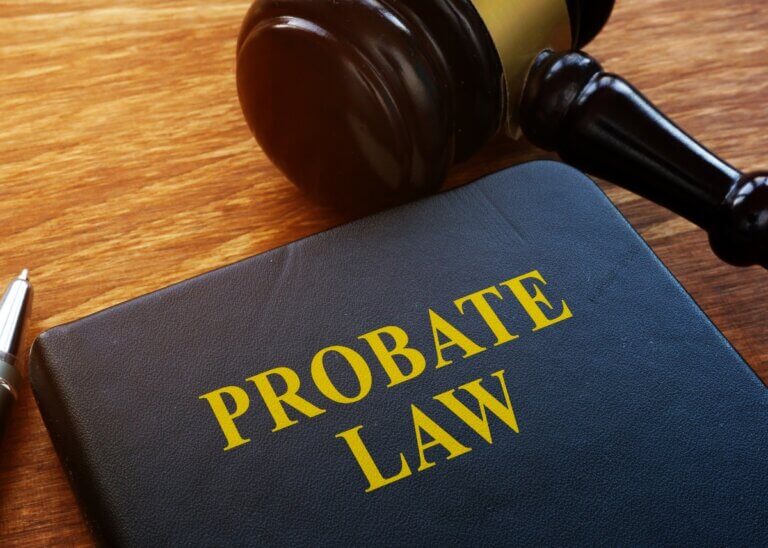Running a business with your spouse or life partner can be one of life’s most rewarding experiences. Together, you’re building something that reflects your values, talents, and shared vision. But what many entrepreneurial couples forget is this: while you’re planning for success, you also need to plan for the unexpected. Summer is often a time […]
Business
Why Now is the Perfect Time for an Insurance Audit in Your Estate Planning
As the new year unfolds, many of us take the opportunity to reflect on our goals and secure our financial futures. One crucial step in effective estate planning that often gets overlooked is conducting an insurance audit. Here’s why now is the ideal time to ensure your insurance policies align with your current estate planning […]
Start the Year with Strategic Tax Planning for Your Estate
As the new year begins, it’s the perfect time to revisit and enhance your estate planning strategies. Effective tax planning ensures your assets are distributed according to your wishes while minimizing tax burdens on your heirs. With significant changes on the horizon proactive planning is more important than ever. Why Early Tax Planning Matters Starting […]
Does Your Revocable Living Trust Reduce Your Federal Estate Tax Bill?
Many believe that once they set up and fund a revocable living trust, property held in the trust will completely avoid federal estate taxes after they die. In reality, a living trust does not provide any unique estate tax avoidance strategies. The primary mechanisms for reducing estate taxes—the unlimited marital deduction and the charitable deduction—apply […]
Beyond Algorithms: The Irreplaceable Value of Human Touch in Estate Planning
In today’s rapidly evolving technological landscape, artificial intelligence (AI) has made significant inroads into various sectors, including estate planning. While AI-driven tools offer a glimpse into the future of streamlined and automated processes, they fall short in addressing the intricate and deeply personal aspects of estate planning. Here’s why the nuanced expertise and empathetic approach […]
Protecting Your Digital Assets: Estate Planning and Avoiding Holiday Scams
The digital age has transformed how we manage and interact with our personal and financial lives. From online banking and social media profiles to digital currencies and cloud storage, our digital assets have become integral parts of our existence. As we plan our estates, it’s crucial to consider these digital possessions to ensure they’re protected […]
Is it Time to Let Go of Those Old Documents?
Sorting through documents, from medical records to financial statements, is a balancing act between necessity and clutter. So, how do you know what to keep and what’s simply junk? Here’s a breakdown: Tax Returns Save returns and supporting documents for three years, or six if it’s complex or self-employment-related, aligning with the IRS audit window. […]
Be Careful Relying on Life Insurance to Provide for Loved Ones
In an estate plan, life insurance can be used as a source of immediate liquidity for beneficiaries by offering a tax-free, lump-sum payment upon the insured’s death. About half of Americans have a life insurance policy. The primary reason people purchase life insurance is to fund burial and other final expenses. However, a policy can […]
Happy 18th Birthday! Now What?
Congratulations! You are now legally an adult. Although you may not feel any different, from a legal standpoint, a great deal has changed. When you were a minor (under age 18), your parents were your legal guardians responsible for making all your decisions. Now that you are an adult, their legal authority over you is […]
Have You Checked Your Beneficiary Designations Lately?
You regularly check the balances of your retirement, bank, and investment accounts. But when was the last time you checked the beneficiary designations on these accounts (and really, all the other accounts that allow you to name a beneficiary)? It may have been years since you first opened an individual retirement account, bought a life […]
How to Tackle the Busiest Season of the Year
As the end of the year approaches, many of us find ourselves balancing holiday gatherings, year-end tasks, and planning for the year ahead. While it’s tempting to put estate planning on hold during this busy season, taking a proactive approach now can provide peace of mind, protect your loved ones, and help you start the […]
The Corporate Transparency Act: What It Means for Terminated Businesses
With the recent implementation of the Corporate Transparency Act (CTA), many business owners are becoming aware of new compliance requirements, specifically the Beneficial Ownership Information (BOI) reporting. While it’s clear that active companies must file, many owners may not realize that businesses terminated between 2020 and 2024 are also required to complete this filing. The […]
Should Your Child’s Guardian and Trustee Be the Same Person?
If you have overheard any estate planning discussions, you have likely heard the words “guardian” or “trustee.” In estate planning, deciding who will ultimately be tasked with caring for your minor child or managing funds for their benefit is an important decision that requires consideration of many factors. Although there is no substitute for you […]
Don’t Let Your Estate Plan Go Up in Smoke
Fewer people are creating estate plans today than in years past. Research shows that, in 2024, less than one-third of Americans report having a will.[1] Every adult—whether they are 19 or 99—should have a will at a minimum. Many people can also benefit from estate planning documents such as trusts, powers of attorney, and advance […]
The Power of Purpose: Unveiling the Impact of Charitable Giving
Compared to residents of other wealthy nations, Americans are more likely to give their time and money to help others. In 2023, the United States ranked ninth in per capita gross domestic product (GDP) but fifthon the World Giving Index rankings.[1] Polling shows that Americans trust nonprofits more than government or business, but they generally […]
Should You Share Your Estate Planning Details With Loved Ones?
When you decide to create a comprehensive estate plan, there are many things to consider. One is whether to tell your loved ones about your plan and how much information to share with them. Estate planning can be a complex and sensitive matter, so your choice may depend on your unique relationships with loved ones […]
How to Pick a Trustee, Executor, and Agent under a Power of Attorney
While the term fiduciary is a legal term with a rich history, it generally means someone who is legally obligated to act in another person’s best interest. Trustees, executors, and agents are examples of fiduciaries. When you select people to fill these roles in your estate plan, you are picking one or more people to […]
Won’t My Spouse and Kids Inherit Everything When I Die?
You may think that if you die while you are married, everything you own will automatically go to your spouse and children. But you are actually thinking of state rules that apply if someone dies without leaving a will. In legal jargon, this is referred to as dying intestate. In that case, the specifics will […]
Will My Revocable Living Trust Avoid Probate? It Depends.
If you have established a revocable living trust (which we will refer to simply as a trust), congratulations! You are on the right track in creating a comprehensive estate plan. However, you are only halfway there. Many people believe that because they took the time to create a trust, their estate will automatically avoid probate, […]
Understanding the Corporate Transparency Act
The Corporate Transparency Act (CTA) marks a significant change in how businesses and certain trusts report ownership information in the United States. If you’re a business owner, trustee, or beneficiary, it’s important to understand your responsibilities under this new law. In this blog, we’ll break down what the CTA entails, why it’s crucial, and who […]



















